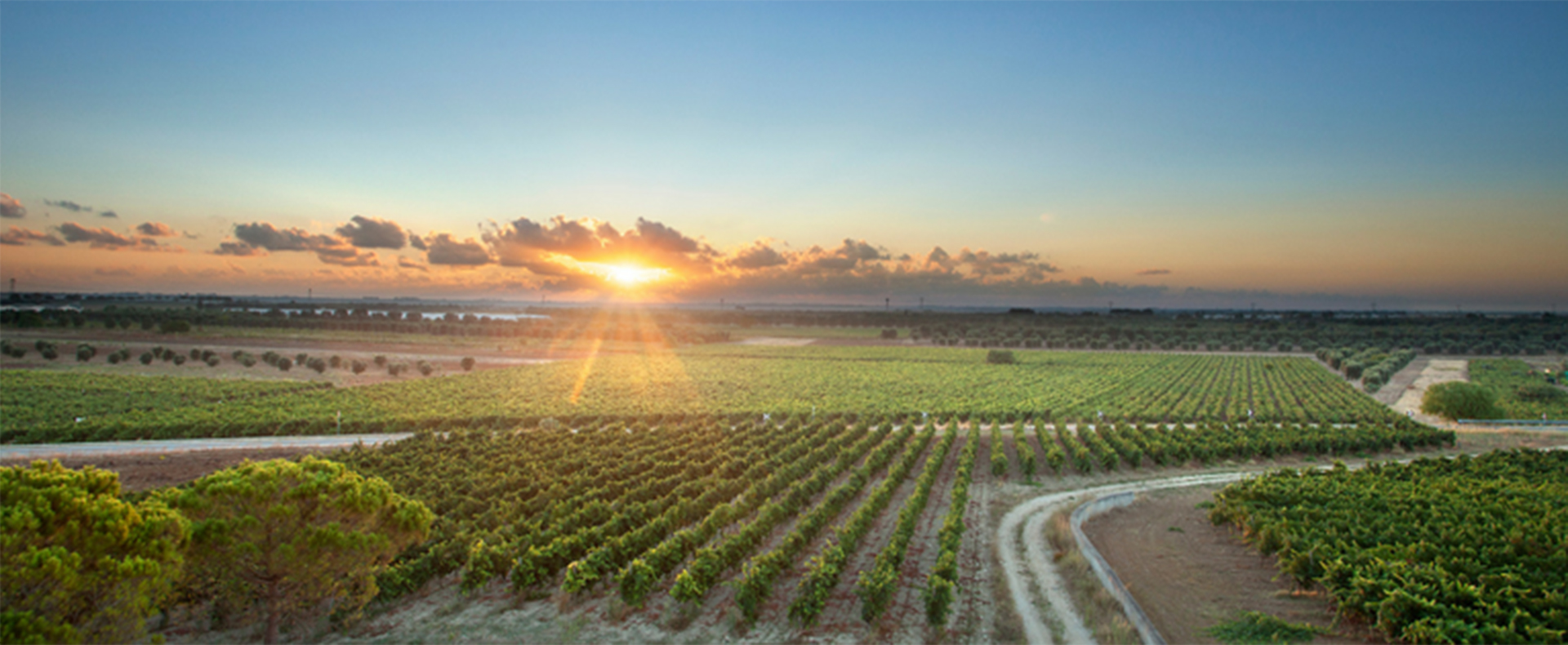The founder of the Cantele winery, Giovanni Battista Cantele — grandfather to the current generation — was born in 1907 in Pramaggiore (in the Province of Venice). During the Second World War, he moved to Imola (Province of Bologna) where he met and married the beautiful Teresa Manara. The couple had two sons, Augusto and Domenico.
After the war, Gianni — as he was known — made a career for himself in the wine trade. Like many in his generation, he found steady work as a broker of bulk wine that he would purchase in Puglia and then sell in Northern Italy. At the time, winemakers in northern Italy had difficulties in achieving the desired alcohol content and body in their wines — in part because of the climatic conditions and in part because of the available winemaking technology. It was not uncommon to ship wine from Puglia (where grape growers had no problems in obtaining fruit with sufficient sugar levels) to blend into the wines of the north. Expanding prosperity and a population explosion in the north had led to growing demand for quality wine.
On one of the many business trips that Gianni made from Imola to Lecce (Puglia’s baroque masterpiece and the hub of its viticulture), he took his wife Teresa with him. It was love at first sight: as soon as they arrived in Lecce, she made up her mind that she wanted to move the whole family there.
In the year’s leading up to Italy’s “economic miracle” and post-war recovery, it was unthinkable that a family with a thriving business would choose to abandon the prosperous north and relocate in the south, where agriculture was still the leading industry. But Gianni’s devotion to Teresa and their shared love of the pristine Salento peninsula inspired the couple to make a “reverse” migration. When most young married couples were moving to the north in search of factory jobs, the Cantele family backed the bags and headed in the opposite direction.
Teresa and Gianni’s son Augusto, 16 years old at the time, was reluctant to follow the family to the “deep south” — even though, in his later years, there was no one who loved Salento more. He remained in the north and went to school to study enology in Conegliano at the historic Institute for Viticultural Research and Experimentation. After completing his degree, he “cut his teeth” in the wine industry working at wineries in the Veneto (northern Italy), where he developed his deft hand for making white wines.
At the end of the 1960s, August finally decided to reunite with his family in Lecce and he began working as a consulting enologist in the townships of Guagnano and Salice Salentino. In 1979, father Gianni and sons Augusto and Domenico decided to start a new winery under the family name. In the early years, Cantele was a bottler, purchasing wines from the wineries where Augusto worked as a consultant. Then, in the 1990s, Cantele began to acquire vineyards and started making its own wines.
The 1990s were important years for Italian wine, with impressive growth in foreign markets, particularly in the U.S. and Central and Northern Europe. In 2003, to meet the growing demand for its wines in Italy and abroad, Cantele opened a new state-of-the-art winery between the villages of Fra Guagnano and Salice Salentino (the best growing zone in Puglia).
Today, the Cantele family owns 50 hectares planted to vine and the family’s current winemaker Gianni Cantele (one of Augusto’s sons) and agronomist Cataldo Ferrari manage another 150 hectares owned by other growers. Augusto’s other son Paolo Cantele is the winery’s brand manager and Domenico’s son Umberto is head of sales. Domenico’s daughter Luisa also works in the estate’s corporate offices together with Gianni’s wife Gabriella. The business remains to this day a true “family affair.”
Grandfather Gianni was a red wine lover. Grandmother Teresa preferred white. When Gianni lovingly scolded her, noting that there were plenty of red grapes in the world that she could enjoy, she responded by saying that if he wouldn’t make her any white wine, she would ask their son Augusto to make her some.
Teresa Manara Chardonnay and Teresa Manara Negroamaro are named in her honor.

